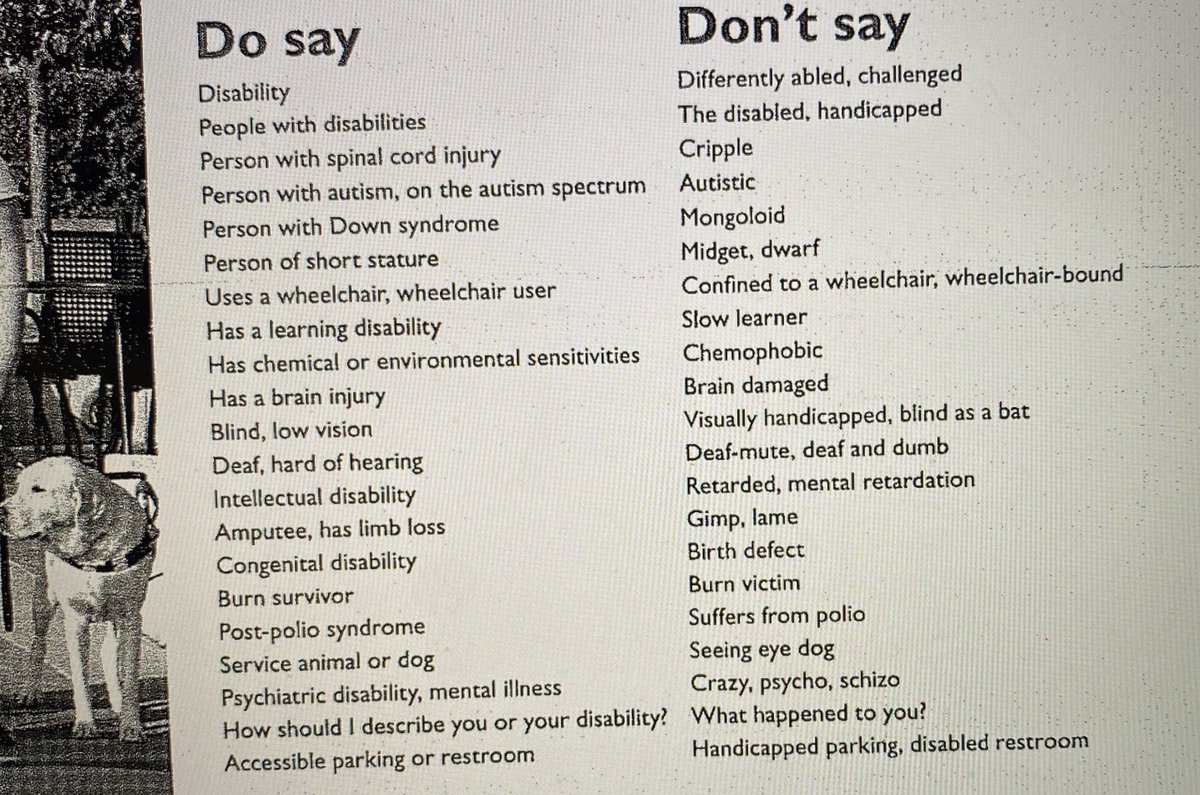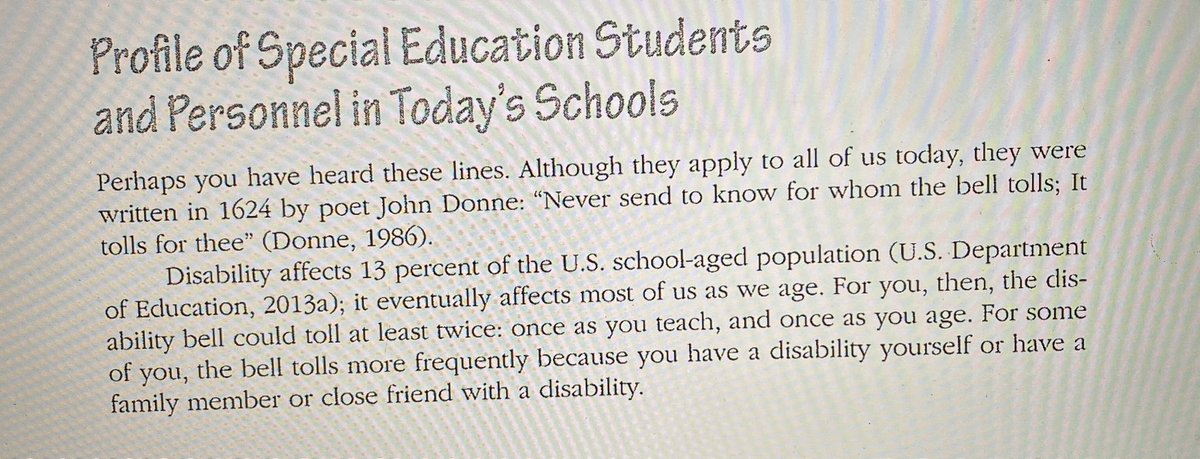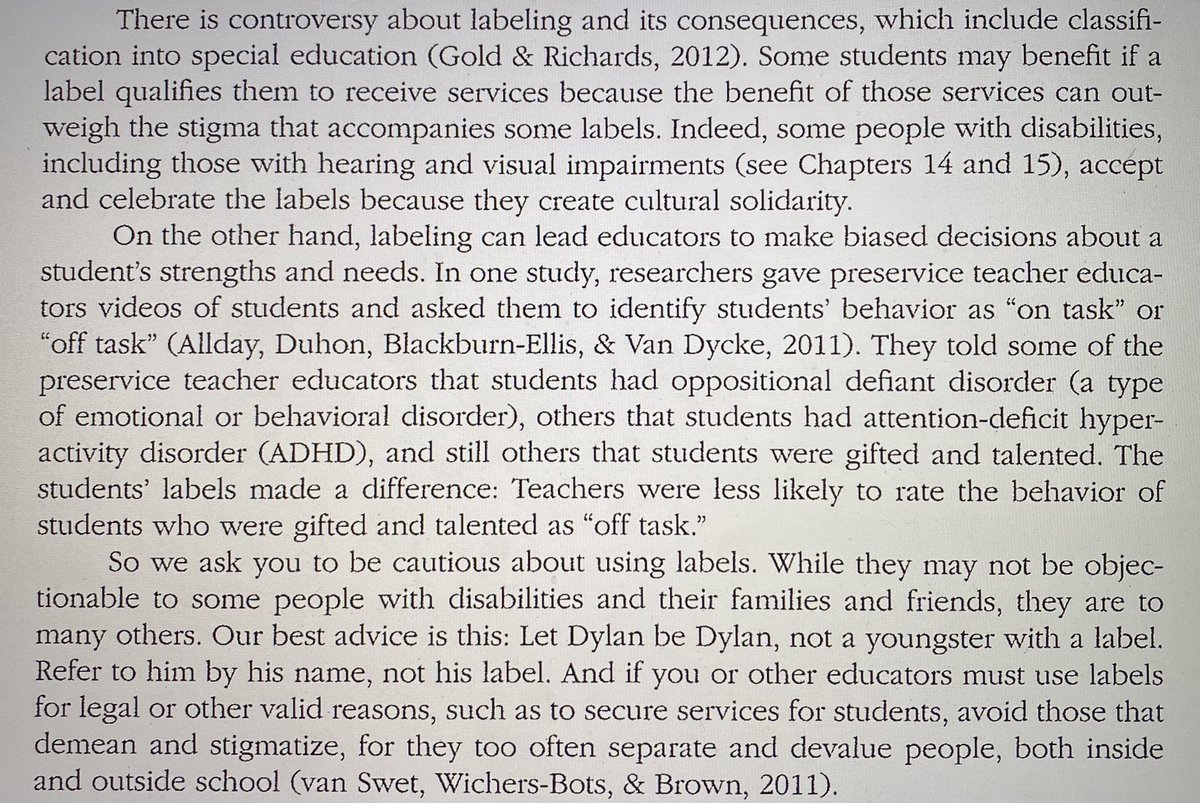
“Autistic” is not a bad word.
It’s a neutral, descriptive term that is very much preferred by autistic people ourselves.
Much like Deaf people and Blind people, the majority of Autistic people want to be called “autistic person,” not “person with autism.”
It’s a neutral, descriptive term that is very much preferred by autistic people ourselves.
Much like Deaf people and Blind people, the majority of Autistic people want to be called “autistic person,” not “person with autism.”
So it was endlessly frustrating to me when, in my reading assignment for my “Issues Affecting Persons with Disabilities” class, the word “autistic” got put in the same category as the r-word. 

There were a lot of other really bizarre and questionable things in that reading, too.
For one thing, the list of “words not to say” included the phrase “differently abled.” But then directly after that chart, this header was used:
For one thing, the list of “words not to say” included the phrase “differently abled.” But then directly after that chart, this header was used:

For another, the experience of disability got linked to the phrase, “Never send to know for whom the bell tolls, it tolls for thee” which is a quote about FUNERAL BELLS.
When I saw this I was taken aback, because being disabled is being implicitly compared to dying.
When I saw this I was taken aback, because being disabled is being implicitly compared to dying.

But let’s focus more closely on the textbook’s reasoning for avoiding the word “autistic,” and ultimately avoiding labels altogether. 

Here, the problem identified is that diagnostic labels lead to negative changes in teachers’ attitudes about students.
But the authors make a mistake in locating the source of that problem in the labels themselves.
The real problem is cultural attitudes about disability.
But the authors make a mistake in locating the source of that problem in the labels themselves.
The real problem is cultural attitudes about disability.
The push to “avoid labeling” as if labels are inherently bad, just leads to a situation where disability continues to be stigmatized.
It’s pointless and harmful to tiptoe around disability, but this textbook is contributing to the taboo on the topic.
It’s so frustrating.
It’s pointless and harmful to tiptoe around disability, but this textbook is contributing to the taboo on the topic.
It’s so frustrating.
Because of textbooks like this, there are teachers & therapists who are literally afraid to say the word “autism” to a child’s parents.
The fear of naming disability because of stigma, just furthers the stigma itself.
And it prevents people from getting diagnosed.
The fear of naming disability because of stigma, just furthers the stigma itself.
And it prevents people from getting diagnosed.
So to any student who’s in the special education field, and to all teachers and therapists:
Please don’t be afraid of naming and describing disability.
Autistic isn’t a bad word. Disabled isn’t a bad word.
You can help break the stigma.
Please don’t be afraid of naming and describing disability.
Autistic isn’t a bad word. Disabled isn’t a bad word.
You can help break the stigma.
• • •
Missing some Tweet in this thread? You can try to
force a refresh




